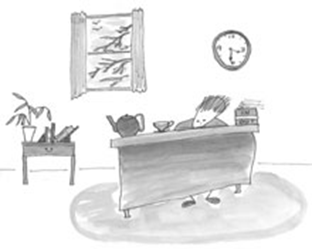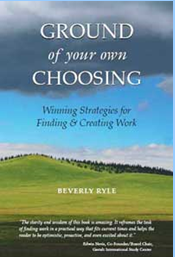
Tired and Overworked
by Bev Ryle
It’s 3:30 in the afternoon and I am writing this with a large pot of tea beside me. It sounds very civilized, except that I made the tea because I am tired, and I felt compelled to work on this column. Instead of taking a nap, I chose to take a stimulant and fall back into my pattern of overwork.
The good news is that I rarely do this any more, and when I do I am conscious of the choice I am making. For years, I just pushed through my fatigue and remained a victim of my own calendar and “to do” lists with absolutely no awareness of how damaging being a supercharged performer was both to my professional life and to my health.
Many of my clients do the same. They talk about how the long hours and demands of their work life are draining their energy and robbing them of time for being with family and friends, serving the community, and taking care of themselves. They constantly struggle to stretch their days to accommodate more, but they do not see how they are participating in a dangerous cycle that entraps them.
To break free, overworkers need to be challenged to look honestly at how tired they really are and what it is costing them. Then they need to have the courage to begin living day-to-day, as if their well being was as urgent a priority as next week’s big meeting, project, or presentation.
How Tired Are You?
I had already been working at trying to achieve a more balanced life (notice how I framed this as yet another thing I needed to “work” to accomplish) for some time before I read Tired of being Tired: Rescue, Repair, Rejuvenate by Jesse Hanley and Nancy Deville.
I took the authors’ self-survey, and it made me see how everyday occurrences, like needing afternoon tea, not allowing myself breathing space in an overscheduled day, and waking up several times each night, were part of a deeper level of exhaustion.
My score on the survey indicated I was in the “dragging” stage, which was exactly how I felt before the tea, at the end of the day and sometimes the first thing in the morning! According to the authors, this put me inches away from more serious problems.
Before the survey I thought I’d been making an effort to balance my life, but what I was really doing was playing the “finding time” game with myself, looking for ways to fit self-nurturing into an already overextended lifestyle.
I see now that this was a necessary first step. Over time, however, giving self-care a low priority causes it to lose its power to renew. There comes a time when a little exercise squeezed in or an occasional massage won’t offset a week of 10+ hour days without even taking time for lunch. Eventually even a vacation will not offset the cumulative toll of working at full throttle.

The remedy to “being drained” requires doing more than playing calendar games. At some point, it becomes necessary to reassess priorities and develop healthier habits across the board, not just rushing to a yoga class now and then!
What is it Costing You?
My clients describe overwork as something they have to do to maintain their careers. In other words, it’s necessary. But is it a winning strategy?
Hanley and Deville write about a woman who headed a very successful company and routinely worked 12 to 14 hour days. One night she called home around 10 p.m. to say she was on her way. When she didn’t turn up, her husband went looking for her. He eventually found her at her desk, paralyzed by fatigue. In this freakish variation on mother’s warning that if we made a face it would freeze that way, she had made overwork her life and had frozen in it.
One of my clients who struggles with overwork described an incident which illustrates how counterproductive overwork can be. A financial analyst on her team stayed up 48 hours straight to prepare for a regional meeting, and then ended up spending the actual event literally on the floor, moaning from the pain of a migraine headache. The hard work she had done in putting the numbers together was negated by her inability to be there to help make sense of them.
“Killing yourself” is not a winning strategy, especially when the long term consequences are potentially disastrous.
Clients often tell me that they work 60+ hours a week because everyone else does, or because it’s expected of them at their level, or because they could not handle letting their co-workers down.
In other words, they overwork because of someone else, not because of their own need to be productive. Others are cracking the whip, and they have become a beast of burden because that’s the culture in their organization.
Return to Working Women page  |
 |
Yet the same people who make this argument often recreate the same conditions when they work for themselves! When they have no bosses or co-workers, they find other reasons to keep up the same pace they did when they worked for someone else.
Overwork is always a choice. It may be driven by the sense of importance we get from being at the office late, or by the fear of losing approval or control. Only when we come face to face with the greater fear of losing more important things, such as a balanced life, health, and a sense of well being, do we begin to make different choices.

"A Ground of Your Own Choosing"
As a career counselor and business consultant, Beverly Ryle has been helping corporate professionals, business owners, and
people-in-transition achieve
their full potential for over 25 years.
She runs the
Center for Career and Business Development
in Eastham, MA
508 240 3532
www.successonyourownterms.com
An Invitation to Break Out of the Pack,and Try Something Different!
